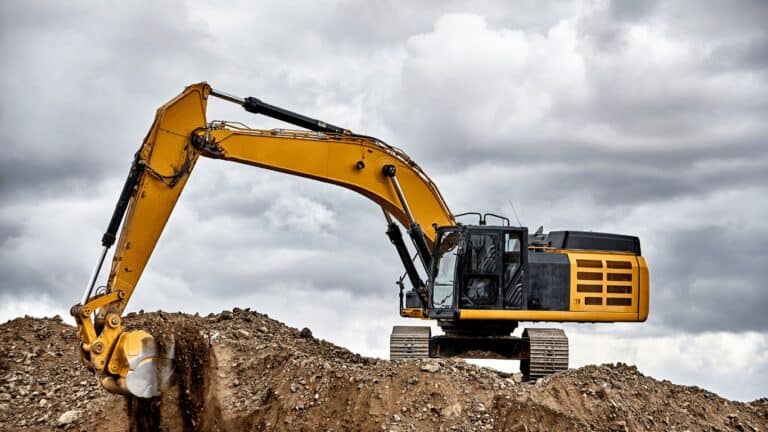Tempe, AZ combines suburban convenience with desert terrain, offering residents a dynamic mix of urban development, rocky soil, and sloped lots near the Salt River. While the weather is mostly dry, the occasional monsoon storms and flash floods can create serious problems if a property’s land is not properly managed. Whether you’re preparing for a new project, facing drainage issues, or noticing changes in your landscape, excavation and regrading may be necessary.
At Legendary Demolition – Tempe, AZ, we specialize in transforming uneven, unsafe, or unprepared land into usable, stable, and build-ready ground. If you’re unsure whether your property needs excavation or regrading, here are the most important signs to look out for.
Water Pooling After Monsoon Rains
Although Tempe doesn’t receive much annual rainfall, it does experience intense downpours during monsoon season. These short but powerful storms can overwhelm properties with poor drainage. If you notice water pooling in low spots, near your home’s foundation, or along walkways, your land may be improperly graded.
Inadequate grading allows water to stagnate instead of flowing away. Over time, this can damage your structure, breed insects, and erode landscaping. Regrading helps reshape the slope of the ground to redirect water properly. Excavation may also be necessary to install drainage systems like dry wells or stormwater trenches.
Foundation Cracks and Soil Movement
Expansive soil is common throughout Maricopa County. This type of soil swells when wet and shrinks when dry—especially problematic in Tempe’s climate, which alternates between arid and stormy conditions. These fluctuations cause the soil beneath your property to shift, often leading to cracks in your foundation, patio, or driveway.
If you see gaps forming around windows, doors that won’t close properly, or visible cracks in walls or slabs, excavation may be needed to replace or stabilize the underlying soil. Regrading then ensures water drains away from your structure to prevent future movement.
Erosion on Sloped Lots
In neighborhoods like South Tempe or near Papago Park, hilly terrain can be prone to erosion—especially when heavy rain flows down a poorly managed slope. Signs of erosion include exposed roots, washed-out mulch, shifting gravel, and bald patches where grass won’t grow.
Regrading your land can reduce the speed of water runoff and protect your landscape. In more severe cases, excavation is required to reshape the slope or to build retaining structures that hold soil in place and prevent long-term erosion.
Damp or Musty Crawl Spaces
While basements are uncommon in Tempe, many homes have crawl spaces that can be affected by poor surface drainage. When water accumulates around the perimeter of your home, it can seep into the crawl space, leading to musty odors, mold, and even structural damage.
Regrading the yard to slope away from your foundation is often the best defense. In some situations, excavation may be needed to install vapor barriers, perimeter drains, or sump pumps to fully protect the area from moisture intrusion.

Uneven, Soft, or Sunken Yard Areas
If parts of your yard are sinking, feel soft underfoot, or look uneven, you may be dealing with improperly compacted soil or buried debris. These issues are common on lots that were filled without proper excavation or grading, especially in older developments or during rushed construction.
Excavation can remove unstable material, and regrading creates a level, compacted surface that supports landscaping, outdoor features, or future structures. This process enhances the look, usability, and value of your outdoor space.
Pooling Water on Driveways and Sidewalks
Concrete and asphalt surfaces should be sloped correctly to allow water to run off. However, if you see puddles forming on your driveway or walkway—especially after a summer storm—this could be due to settled ground or incorrect grading around the slab.
Pooling water not only degrades materials over time but also creates slip hazards and aesthetic issues. Regrading can solve minor surface runoff issues, while excavation may be needed to rebuild the base beneath your pavement for long-term stability and proper slope.
Preparing for a New Build or Landscape Project
If you’re adding a pool, garage, patio, or even a garden structure, the first step is often excavation and regrading. A level, compacted site ensures that the structure will be stable, code-compliant, and built on a solid foundation. Without this groundwork, you may face drainage problems or structural failures later on.
In Tempe, where land space is limited in some areas and slopes exist in others, our team ensures your site is fully prepped before any construction begins. We handle site clearing, grading for stormwater management, and excavation for utilities and foundations.
Overgrown or Inaccessible Areas of Your Property
Have a section of your yard that’s unusable because it’s too rocky, overgrown, or unstable? Many homes in Tempe have lots that haven’t been fully developed or maintained, especially in older neighborhoods or larger properties. Excavation and regrading can transform these areas into functional outdoor spaces.
We can remove brush, dig out unwanted material, and shape the land for gardens, outdoor living areas, or additional structures. Reclaiming underused land not only improves property functionality—it also boosts curb appeal and resale value.
Why Excavation and Grading Matter in Tempe
Tempe’s desert soil, unpredictable weather, and wide range of home ages and lot conditions make excavation and regrading critical for maintaining your property. Whether you’re experiencing poor drainage, soil instability, or simply trying to improve your landscape, properly preparing the ground will save you time, money, and frustration.
At Legendary Demolition – Tempe, AZ, we understand the unique challenges of building and maintaining land in Arizona. Our team uses advanced equipment, local knowledge, and years of experience to shape your land safely, efficiently, and to code.
